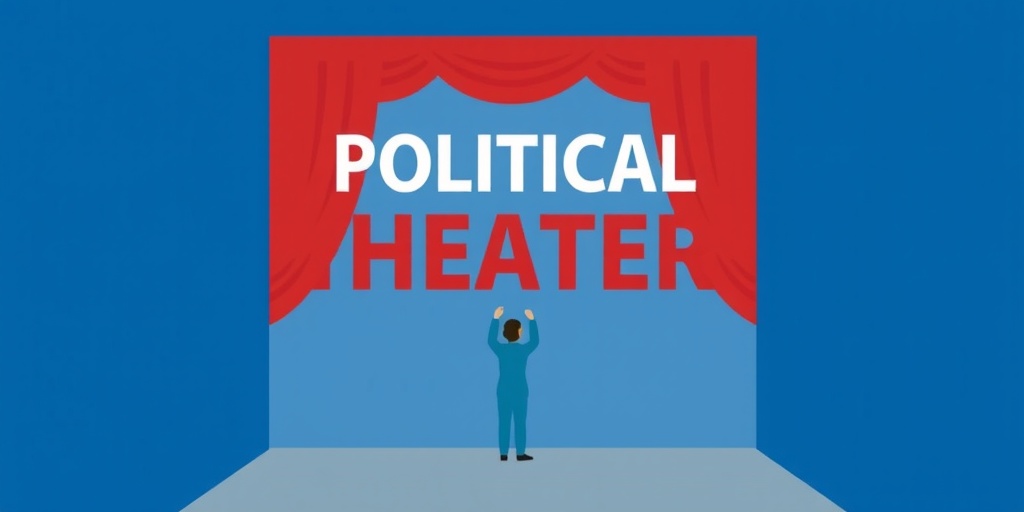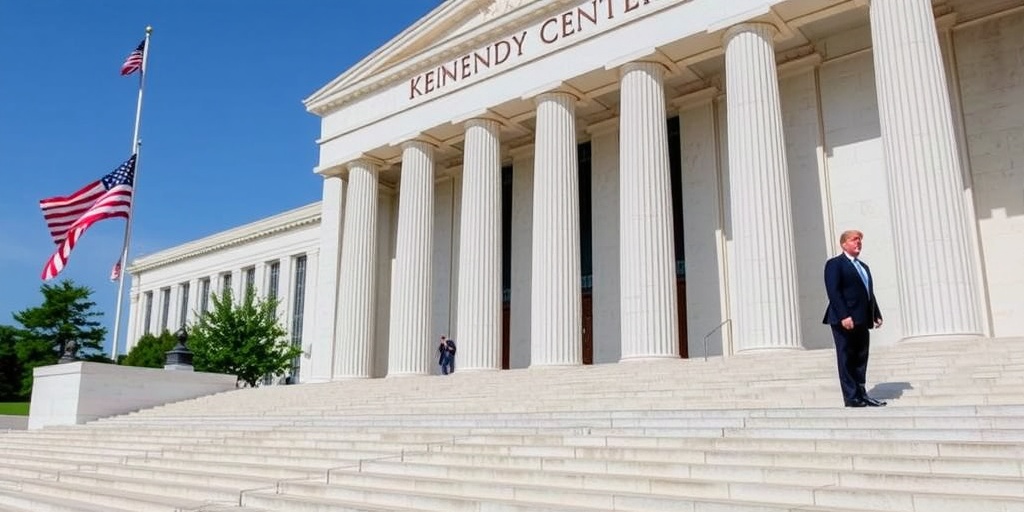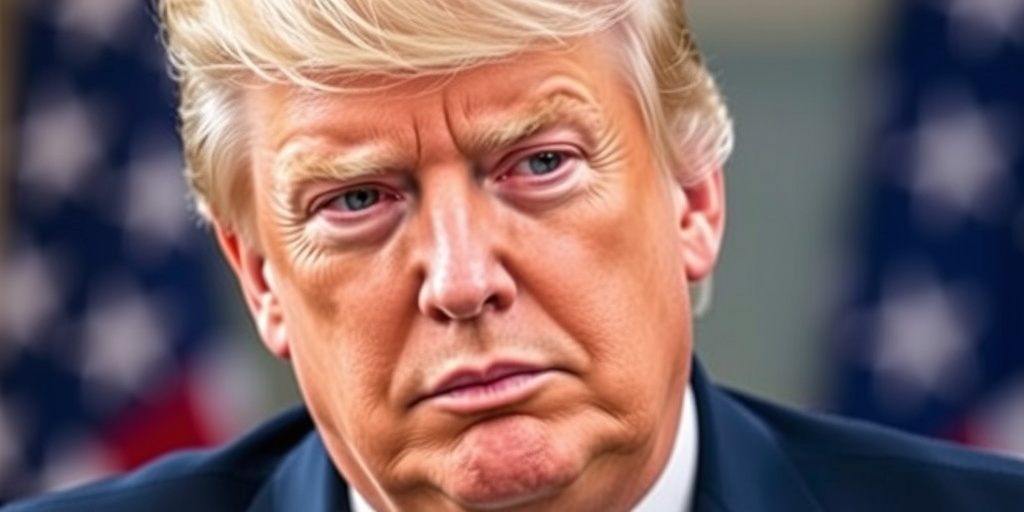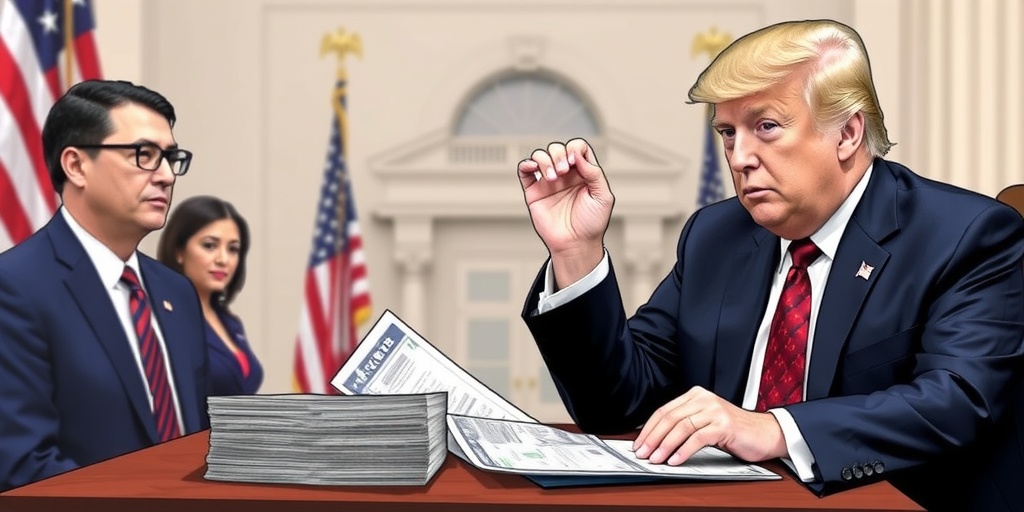Now Reading: Small Businesses Confront ‘Tornado’ of Challenges: Cuts, Freezes, and Tariffs
-
01
Small Businesses Confront ‘Tornado’ of Challenges: Cuts, Freezes, and Tariffs
Small Businesses Confront ‘Tornado’ of Challenges: Cuts, Freezes, and Tariffs
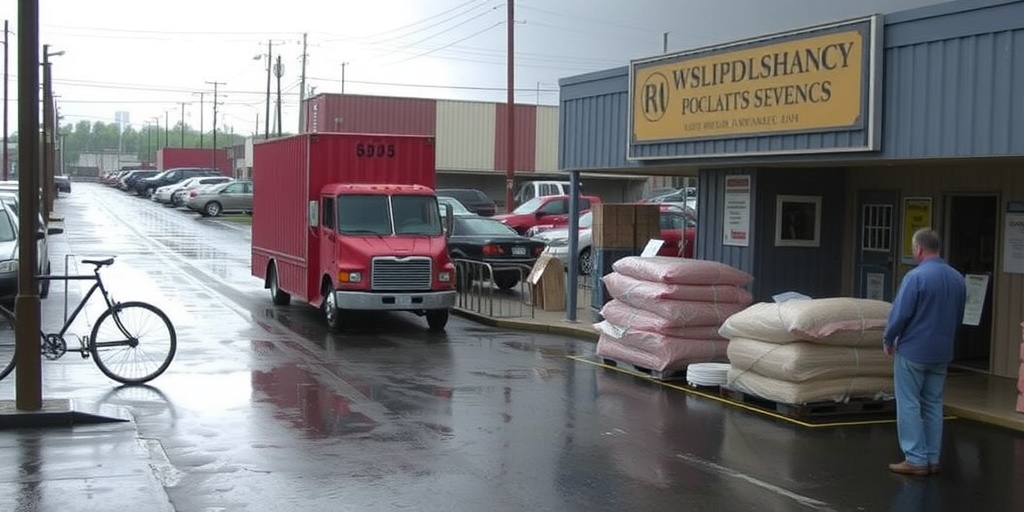
Uncertain Times for Small Businesses Amid Economic Turmoil
In Golden, Colorado, the wilderness guiding company Golden Mountain Guides, led by Ben Coryell, is facing a challenging period. With the introduction of heavy tariffs by the Trump administration, Coryell has seen a wave of cancellations from customers wishing to withdraw from their climbing courses and mountaineering expeditions planned for the summer. Many cite their apprehensions regarding significant expenditures as a reason for their change of heart.
As Coryell grapples with these customer cancellations, he’s also concerned about the long-term sustainability of his business. Cuts to the National Park Service’s personnel have resulted in delays in processing permits vital for operating along popular routes. Furthermore, the reduction in park rangers raises fears about unlicensed operators taking advantage of the situation. Although he has not resorted to layoffs yet, the likelihood of having to do so grows with each passing week. “It’s really starting to feel like a lot of the operations we’ve depended on might have to be bumped for the next number of years until we can find a healthy status quo,” Coryell expressed, reflecting the uncertainty felt by many entrepreneurs in similar circumstances.
Across the nation, countless small business owners are experiencing analogous struggles as they navigate the unpredictable political and economic landscape. The past couple of months have been particularly tempestuous, marked by funding freezes, staff reductions in federal agencies, and the repercussions of a stringent immigration policy, all contributing to a destabilized environment for small enterprises.
Natalie Madeira Cofield, CEO of the Association for Enterprise Opportunity, articulated the distress felt by small business owners, likening the current climate to a tornado. “This is an unprecedented moment,” she noted, encapsulating the feelings of many navigating this uncertain terrain.
Recently, the small business sector enjoyed a phase of growth and innovation sparked by the COVID-19 pandemic, creating a surge in new business formations. However, the subsequent inflation surge and rising interest rates placed strain on these enterprises, many of which are now operating with fewer employees than before the pandemic. According to data from Homebase, hiring among small firms decreased by 1.6 percent in the first quarter of 2025 compared to the previous year, while QuickBooks data indicates a rapid decline in businesses with less than ten employees starting in March 2024.
Economist Ufuk Akcigit from the University of Chicago highlighted that small businesses, often already operating on thin margins, began running up credit card debt in 2021, which escalated as interest rates rose in 2022. Consequently, these businesses faced diminished revenues and increased delinquency rates.
“Small businesses don’t have internal capital to rely on,” Dr. Akcigit remarked. “As a result, if there’s any financial difficulty, they’re the first group to be left out of the credit market.”
Despite initial optimism after Donald J. Trump’s election, conveyed through a survey by the National Federation of Independent Business, this sense of buoyancy has waned. Holly Wade, the executive director of the NFIB’s research center, mentioned that while there were hopes for favorable tax policies and relaxed regulations, the situation has not unfolded as many anticipated.
The ramifications of the administration’s policies have begun to manifest in unfortunate ways. Faced with a freeze on grants and federal contracts, particularly impacting veteran-owned businesses that rely heavily on government contracts, numerous entrepreneurs are signaling distress. As Nancy Langer, a consultant specializing in mergers and acquisitions for government contractors, noted, some veteran-owned businesses are teetering on the brink of bankruptcy.
Moreover, opportunities linked to federal purchasing—once a lifeline for many small enterprises—are dwindling. On his first day in office, President Trump rolled back the prior administration’s initiatives that had aimed to increase federal spending with small and disadvantaged businesses. Rachel Klein, CEO of Fire Starter Studios in Los Angeles, found her production company increasingly reliant on federal contracts as the local film industry slowed down. With solicitations drying up and competitions bypassed, Klein is now forced to make difficult decisions, including selling off critical assets of her business.
Coryell and other small business owners are also affected by the stark reality of impending tariff costs. Though they may not be exporters, small businesses often rely on imports, and sudden increases in operational costs lead to cutbacks in other areas, sometimes making it challenging to meet financial obligations.
While some like Fort Hamilton, a distillery in Brooklyn, have managed to source domestically for certain materials, they still rely on international suppliers for key components like bottles and labels. Faced with the tariffs, co-founder Alex Clark has preemptively stocked up on supplies, diverting cash that could have been used to expand his workforce—a decision reflecting a broader struggle among small businesses attempting to balance growth and sustainability amid economic uncertainty.
The future remains unpredictable for small businesses grappling with tariffs, regulatory constraints, and diminishing support from essential federal programs and agencies. The plight of these entrepreneurs underscores the need for renewed focus on policies that foster resilience and growth within this vital sector of the American economy.
Stay Informed With the Latest & Most Important News
Previous Post
Next Post
-
 01New technology breakthrough has everyone talking right now
01New technology breakthrough has everyone talking right now -
 02Unbelievable life hack everyone needs to try today
02Unbelievable life hack everyone needs to try today -
 03Fascinating discovery found buried deep beneath the ocean
03Fascinating discovery found buried deep beneath the ocean -
 04Man invents genius device that solves everyday problems
04Man invents genius device that solves everyday problems -
 05Shocking discovery that changes what we know forever
05Shocking discovery that changes what we know forever -
 06Internet goes wild over celebrity’s unexpected fashion choice
06Internet goes wild over celebrity’s unexpected fashion choice -
 07Rare animal sighting stuns scientists and wildlife lovers
07Rare animal sighting stuns scientists and wildlife lovers













